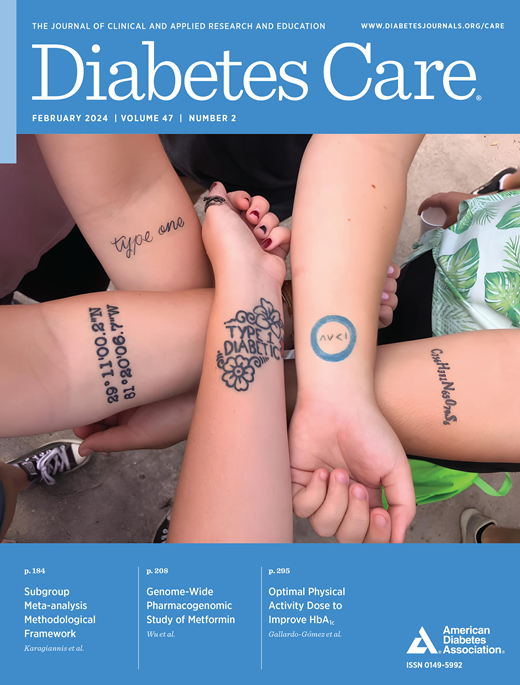How to Fix a Broken Health Care System: Pathways to Maximize Health and Well-being for All
IF 16.6
1区 医学
Q1 ENDOCRINOLOGY & METABOLISM
引用次数: 0
Abstract
The U.S. health care system is broken, with particularly low performance for health outcomes, access to care, equity, and administrative efficiency in comparison with other high-income countries, despite high cost. By virtue of the many elements required for optimal care, the poor diabetes care quality and outcome metrics of the U.S. are canaries in the coal mine for the health care system. The fundamental problem with the U.S. health care system is that it does not prioritize the long-term health and well-being of all individuals and communities. Three intertwined elements are foundational for an understanding of why the U.S. health care system is built the way it is and what changes are necessary to improve it: 1) ethics and culture; 2) political economy, the underlying political and economic structures that shape our nation and thus our health system; and 3) the definition and measurement of value in health care. This article recommends that health care policies around health insurance and payment be designed to support, incentivize, and sustain effective population health models that address medical, social, psychological, and behavioral needs of all individuals and communities. Good governance is essential to assure that payer and provider market incentives are explicitly aligned to prioritize the health and well-being of individuals and communities and cost-effectiveness of care, beyond short-term financial gain for health care systems and investors. Equitable access allows for health care resource distribution according to need, enabling all individuals to have a fair and just opportunity for health.如何修复破损的医疗保健系统:使所有人的健康和福祉最大化的途径
与其他高收入国家相比,美国的医疗保健体系已经支离破碎,尽管成本高昂,但在健康结果、获得医疗服务、公平和行政效率方面的表现尤其糟糕。由于最佳护理所需的许多因素,美国糖尿病护理质量差和结果指标是医疗保健系统煤矿中的金丝雀。美国医疗保健系统的根本问题是,它没有优先考虑所有个人和社区的长期健康和福祉。三个相互交织的因素是理解美国医疗保健系统为什么是这样建立的以及需要做出哪些改变来改善它的基础:1)道德和文化;2)政治经济学,即塑造我们国家的潜在政治和经济结构,从而塑造我们的卫生系统;3)医疗保健价值的定义与度量。本文建议,围绕健康保险和支付的卫生保健政策应设计成支持、激励和维持有效的人口健康模式,以满足所有个人和社区的医疗、社会、心理和行为需求。良好的治理对于确保付款人和提供者的市场激励明确一致,优先考虑个人和社区的健康和福祉以及护理的成本效益,而不是卫生保健系统和投资者的短期财务收益至关重要。公平获取可使保健资源按需分配,使所有人都能享有公平和公正的保健机会。
本文章由计算机程序翻译,如有差异,请以英文原文为准。
求助全文
约1分钟内获得全文
求助全文
来源期刊

Diabetes Care
医学-内分泌学与代谢
CiteScore
27.80
自引率
4.90%
发文量
449
审稿时长
1 months
期刊介绍:
The journal's overarching mission can be captured by the simple word "Care," reflecting its commitment to enhancing patient well-being. Diabetes Care aims to support better patient care by addressing the comprehensive needs of healthcare professionals dedicated to managing diabetes.
Diabetes Care serves as a valuable resource for healthcare practitioners, aiming to advance knowledge, foster research, and improve diabetes management. The journal publishes original research across various categories, including Clinical Care, Education, Nutrition, Psychosocial Research, Epidemiology, Health Services Research, Emerging Treatments and Technologies, Pathophysiology, Complications, and Cardiovascular and Metabolic Risk. Additionally, Diabetes Care features ADA statements, consensus reports, review articles, letters to the editor, and health/medical news, appealing to a diverse audience of physicians, researchers, psychologists, educators, and other healthcare professionals.
 求助内容:
求助内容: 应助结果提醒方式:
应助结果提醒方式:


